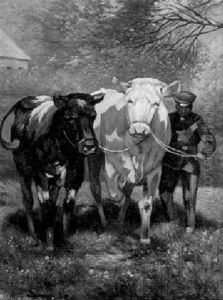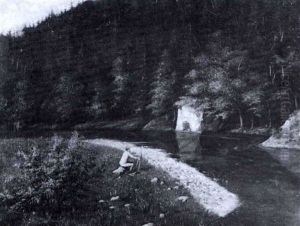Richard Hartmann Paintings
Richard Hartmann was a prominent German industrialist and engineer, born on November 8, 1809, in Barr, Alsace, which at the time was part of France and later became part of Germany. His contributions to the industrial revolution in Germany, particularly in the fields of textile machinery and locomotive construction, were significant and left a lasting impact on the country's industrial landscape.
In 1837, Hartmann made a bold move to Chemnitz, Saxony, a region that was rapidly industrializing, and started his career as a simple mechanic. With a combination of entrepreneurial spirit and engineering expertise, he founded a small engineering workshop in 1837, which marked the beginning of his industrial empire. This workshop would eventually grow into a major manufacturing firm, known as the Sächsische Maschinenfabrik (Saxon Machine Factory), in 1848. Initially focusing on textile machinery, Hartmann's business soon expanded into the production of steam engines and, most notably, locomotives.
Under Hartmann's leadership, the company flourished and became one of the largest locomotive manufacturers in Germany, producing over 5,000 locomotives during his lifetime. Hartmann was known for his innovative approach to manufacturing and his commitment to quality, which earned his locomotives a reputation for reliability and efficiency. His contributions to the railway industry were instrumental in propelling the mobility and transportation infrastructure in Germany and beyond during the 19th century.
Aside from his industrial achievements, Richard Hartmann was also involved in social and educational initiatives. He was a pioneer in providing for his workers, establishing policies such as health insurance, pension schemes, and housing facilities, which were progressive for his time. Furthermore, he played a significant role in the establishment of technical education institutions in Chemnitz, contributing to the advancement of technical skills and knowledge among the workforce.
Richard Hartmann passed away on December 16, 1878, in Chemnitz. His legacy is remembered not only through the continued relevance of his contributions to industrial manufacturing and railway transportation but also through his forward-thinking approach to worker welfare and technical education. Today, Hartmann's influence can still be seen in Chemnitz, where he is celebrated as one of the city's most important industrialists and benefactors.





